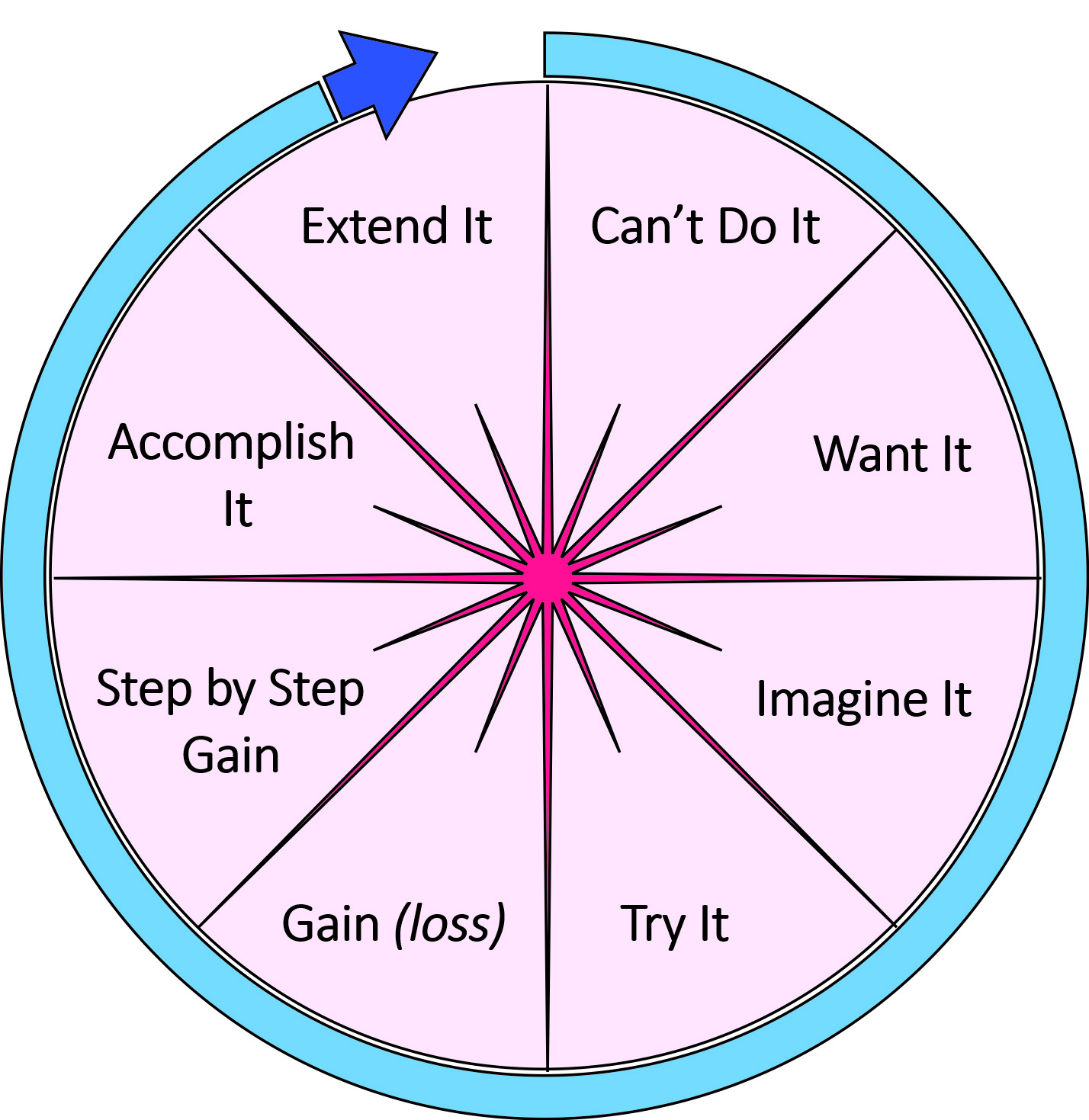Intend To Be Brilliant, Beautiful, Remarkable

When I was first introduced to sales and marketing, I was taught to sell the most expensive, most valuable product. If the prospect balked, I dropped to a lower tier, always staying as close to the top of the sale as possible. The idea was that a customer would rarely go up in price or value but if you started at the top, they might buy-in there and, if you had to drop lower, any position you settled at would be higher than if you startled at the bottom.
It's a good approach for our self-directed performance. If we wish to become masterful at something, set excellence as the baseline and improve from there.
Will we begin at excellence? Maybe not. I don't think I ever have. We generally have to work our way up to excellence as a baseline but that happens if we simply lean into steady, consistent, incremental improvement in whatever we do.
We all begin in ignorance. Think of a tiny baby. What do they know about this place? Nothing. They have to learn the most rudimentary parts of absolutely anything. And, in truth, that never really changes. We do become more knowledgeable and capable over time but the world we occupy is forever greater than our comprehension.
No doubt we have to appear as if we have it together, that we know what we're doing, and we regularly do.
Ignorance however is the stable counterpart of excellent creation. And the truly impressive are aware of this. They know their knowledge is mostly belief. They know the unexpected is always present. Their knowledge becomes a baseline for their discovery and their willingness to grow, to change belief, to apply their skills in unexpected ways. It is why they seem so masterful.
Getting better bit by bit is boilerplate and for a good reason. Life is a never-ending learning moment.
The consistency, the steadiness of repetitive little efforts to grow and improve build two sets of habit in the learning moment.
The first is the steadily improving habit of the skill we are perfecting. We get better at anything we do over and over again. Once we've done it enough, we say it becomes second nature, that we are accomplished at the skill. We not only become adept at performing the skill, we can become artful at it - we achieve the ability to do it elegantly. That word always implies we do something with the least number of required relationships. Elegance is never over done, never too much, always just enough, always just right. Experience in any skill brings us to this point.
Secondly, we develop a far-reaching, all-inclusive habit of improvement. Across the whole range of things we explore and do, we get better at getting better.
Life is like a faceted jewel. It has many faces, many tiny mirrors in which the light of life gets reflected. When all of these become highly polished, when all of their imperfections are slowly abraded out, these facets acquire a mirror-like finish that simply reflects more light.
When each facet of our life achieves this mirror-like finish born of our re-iterative effort to improve, we become glowing, radiant in this self-perfecting achievement.
It's important for us to see this effort to grow excellent in the right way.
It never actually works if we do it for some outside approval - for "likes." When we do things for the approval of others, well... that becomes its own reward, by which I mean, that's all you get. External approval is shallow. It simply lacks any depth. It's Hollywood, spectacle and pop culture - always a mere flash-in-the-pan.
The only enduring, personal acquisition of excellence is for ourselves. We achieve excellent performance to meet our own internal aspirations - we wish to succeed, we want to do better. This is called inner-directed and we know this quality is a key for all top performers.
- We set the criteria of achievement ourselves.
- We make goals that are just beyond our reach.
- We take chances that we might win if we re-align our skills in just the right way.
- When we succeed, we know we have grown to become more through our own efforts.
Study how major competitions like the Olympics are graded and judged. There is an important value called degree of difficulty. It refers to the athelete's choice of performance difficulty - how hard is this to do. They choose to do something hard to do. The more difficult this is, the higher the rating of their score. If you just try to do something easy, the judges are not impressed.
 This is the internal orientation we make to advance our prowess. Time lifts it upward.
This is the internal orientation we make to advance our prowess. Time lifts it upward.
We don't try to overshoot our abilities. We just set goals that are beyond us but attainable if we push our skills, if we polish the mirror of our performance.
Don't worry if you fail. That's the abrasive part. That's the polishing agent. Get up and do it again. We move through scrapes and bruises.
You'll know more this time, You know what you missed in the previous failure. You'll have a new thought on how it might be done. You will refine your effort with excellence.
Excellence is less an outcome than it is the incremental trend of improvement. Establish that trend in yourself. Just lean in that direction. Stay in motion towards an excellent end. Each step will be a bit better. Every bit of that adds up.
Excellence is the cumulative details of your effort to improve.
You can start now.
Lean in that direction. Help others on your team, in your family to lean in the same direction. Time will begin to unfurl a ribbon of growth, a steady stream of improvement that makes a practical difference in life.
Intend to become brilliant, beautiful and remarkable. Just heading in that direction simply makes things better.
